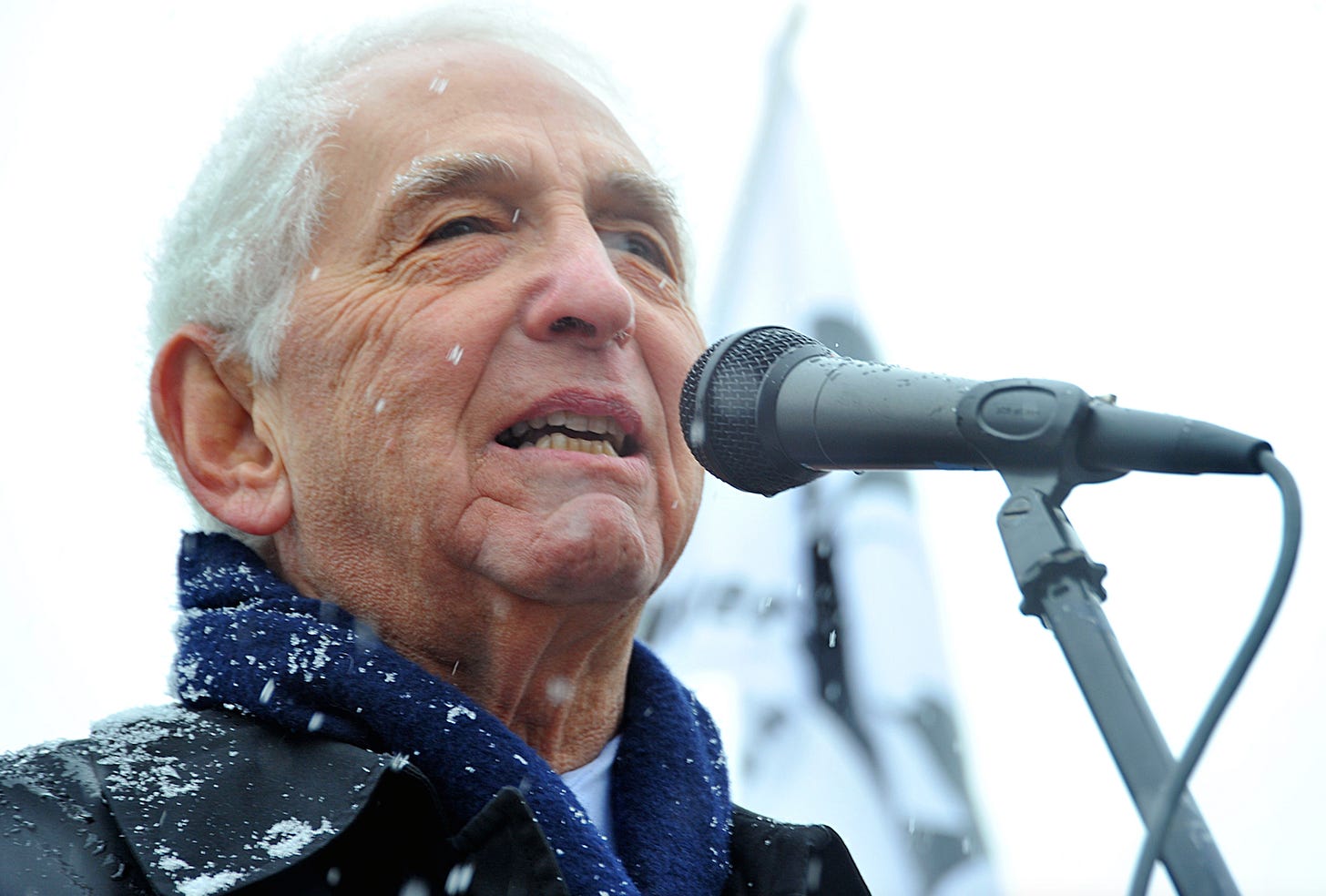Daniel Ellsberg Talks About Whistleblowing, the Pervasiveness Of Official Lies, and the Dangers of the Espionage Act
In an interview with "Useful Idiots," Daniel Ellsberg talks about official deceptions, and how he was upheld as the "good" whistleblower to disparage the likes of Ed Snowden and Julian Assange

A former Marine with a PhD from Harvard in Decision Theory, Daniel Ellsberg joined the Pentagon in 1964 as special assistant to Assistant Secretary of Defense John McNaughton, himself perhaps the closest advisor to Secretary Robert McNamara. Ellsberg, in other words, was the right hand of the right hand, of the man who would become known as the chief architect of the Vietnam War.
Ellsberg became famous years later for shepherding to the public a wealth of secret documents about the ugly history of failure, brutality, and ignorance in Vietnam, a collection known as the Pentagon Papers. He is America’s most famous whistleblower, a figure who single-handedly triggered a major constitutional crisis when the government of Richard Nixon tried to block publication of his material.
Ellsberg remains an important figure in American culture and politics precisely because so little has changed since the events of the fifties, sixties, and seventies he described back then. Ellsberg is adamant that our military and intelligence services don’t learn from even the bloodiest failures. However, when asked in the Useful Idiots if they’d at least learned something in a negative sense — like how to deal with whistleblowers and control propaganda by shutting off pictures of war deaths — he concurred, explaining that he himself has been used as propaganda.
“It is now accepted that somebody can be a good whistleblower, and that’s Daniel Ellsberg,” he says, “in contrast with Chelsea Manning and Ed Snowden. The appreciation that I’ve been getting since 2010, I can date very simply to the need to denigrate Chelsea Manning.”
He went on to describe a New Yorker piece written by Malcolm Gladwell that ripped Ed Snowden in comparison to him, among other things quoting an analyst who wondered if Snowden “may have been the dupe of a foreign-intelligence service.” Ellsberg wrote a letter to the New Yorker calling the contrast ridiculous, and, he tells us, “They never published it.”
Overall, Ellsberg’s takes on nuclear safety, the implications of the use of the Espionage Act in the Julian Assange case, and continued misuse of secrecy and hyper-aggressive foreign policy in places like Afghanistan and Syria, still resonate. The most powerful part of his interview regarded the power of the secret state in modern America.
“They know where we are, they know our names, they know from our iPhones if we're on our way to the grocery store or not,” he said. “We could be East Germany in weeks. In a month.”
The last portion of the Useful Idiots episode:
This is an excerpt from today’s subscriber-only post. To hear the entire episode and get full access to the archives, you can subscribe for $5 a month or $40 a year


I subscribed for a year, but I only see part of the video. How can I see the whole video?
Aha! I clicked on the video to see it on Youtube. Then I clicked on Useful Idiots. That gave me the "whole video." Finally, go back to Substack and click on the video to see the extra part.